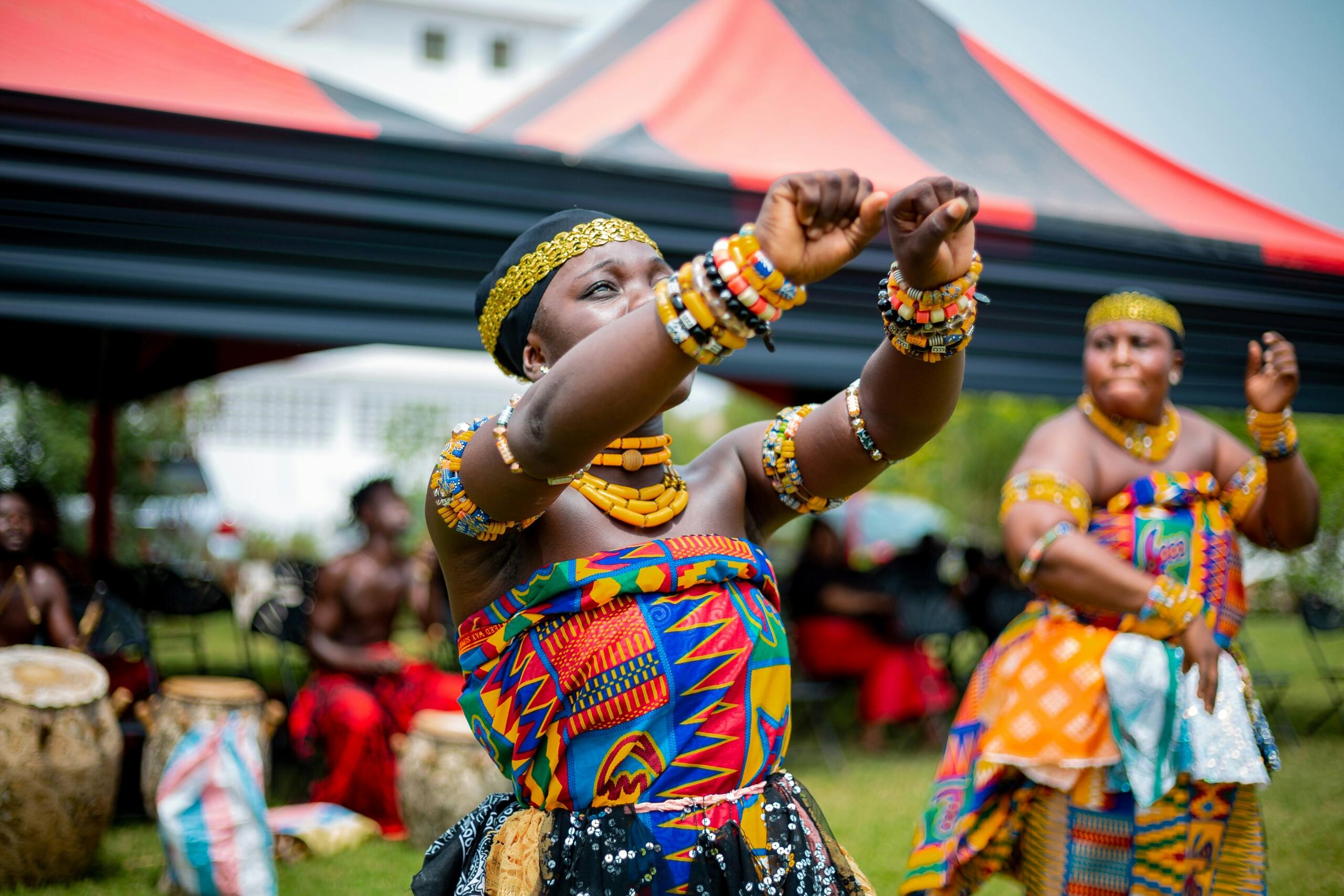Folklore is a mirror of culture—sometimes clear, sometimes distorted, always revealing."
Anonymous
There’s something timeless and magical about hearing stories in isiZulu, especially those passed down through generations. Whether it’s the wit of the clever hare or the tricks of the jackal, these tales are more than entertainment. Rather, they carry culture, history, and language. For learners of isiZulu, especially those new to the language or trying to improve their fluency, using a traditional story as part of your learning can clarify grammar, improve vocabulary, and give you that special connection to the language in ways that textbooks simply can’t.
Across KwaZulu-Natal and parts of Gauteng and Mpumalanga, oral storytelling has long been a central part of life. In days gone by, families used to gather around fires in the evening to hear elders share tales rich with meaning.
Today, these same isiZulu folktales are finding their place in private Zulu lessons, school classrooms, and even online tutoring sessions. In a way they create a bridge between modern learning and traditional heritage.
In this article, we’ll explore the value of Zulu folklore, how it can support your language goals, and how a private Zulu lesson can help you tap into this rich tradition.

The Power of Storytelling in isiZulu Culture
In isiZulu culture, the storyteller plays a role far more significant than just spinning a good tale. Known as umlobi wezinganekwane or sometimes umlando, the storyteller acts as a historian, a moral guide, and often, a teacher. Through expressive language, gestures, and traditional phrases, they bring life to a traditional story, often drawing on familiar animals like the hare (unogwaja) or the jackal (impungushe) to convey lessons.
These characters aren’t just fun to listen to; they’re also powerful tools for learners. The clever hare often represents wisdom and wit to outsmart larger or more dangerous animals. The jackal, on the other hand, teaches caution and the consequences of greed. These recurring characters make it easier to remember vocabulary and structure, particularly when working with verb tenses like past and present, or when studying descriptive language.
In a private Zulu lesson, a tutor can guide you through the rhythm and patterns of stories in isiZulu, using them to highlight sentence construction, dialogue forms, and culturally significant expressions. Ultimately, this is language learning rooted in narrative, and it sticks!

A Tale Retold: The Jackal and the Hare
To see how useful this can be, let’s take a quick look at one of the more well-known isiZulu folktales, a classic tale involving our two favourites: the jackal and the hare.
Impungushe noNogwaja
Kwesinye isikhathi, uNogwaja noImpungushe bahlala eduze komfula omkhulu. UNogwaja ohlakaniphile wahlala ebamba izinhlanzi ukuze azidle. UImpungushe, evila futhi elukhuni, wafuna ukudla ngaphandle kokusebenza. Ngolunye usuku, wathatha izinhlanzi zikaNogwaja ngenkathi elele.
UNogwaja wavuka wathukuthela, wabe esenza icebo lokumfundisa isifundo. Wafaka izimbiza eziyinqaba emfuleni, wenza umsindo omkhulu, wathi: "Ngithole iGolide!"
UImpungushe, ongenakuzibamba, wagxuma emfuleni, wahlala phansi kwalezo zimbiza ezingenalutho. Waphoxeka, futhi uNogwaja wamtshela: “Akukuhle ukudla umsebenzi womunye umuntu.”
Kusukela ngalolo suku, uImpungushe waqala ukuzingela ukudla kwakhe.
This simple folktale can teach more than just a moral. Using it in a private Zulu lesson, you might focus on the use of the past tense (wathatha, waphoxeka, wathi), explore direct dialogue structure, and identify adjectives and adverbs that add even more richness to this descriptive language.
Through the support of a tutor, you’ll learn how to translate the text, build vocabulary, and even retell the story in your own words. Don’t worry, a wise man once said, it always seems impossible, until it’s done!

Bringing Folktales Into the Classroom or Private Lessons
Across South Africa, many teachers are starting to bring folklore in Zulu into the classroom. At schools like Zwelibanzi High School in Umlazi or Mahlahle Primary in Soweto, teachers are joyfully using local oral traditions to help children connect with the Zulu language on a deeper level. Remember that when you hear isiZulu stories that mirror their own experiences or cultural context, it becomes more meaningful.
Whether you’re a first-language speaker aiming to improve writing and comprehension, or a second-language learner starting from the basics, a traditional story offers context. It gives you ready-made phrases, a memorable structure, and often introduces idioms or proverbs that you might not find in standard textbooks.

In one-on-one private Zulu lessons, a tutor might use isiZulu folktales to demonstrate sentence transitions, build listening comprehension, or even act out scenes to practice spoken language. These are lessons that stick because they’re enjoyable and human, they’re not mechanical drills or rote memorisation.
Platforms like Superprof allow you to find local tutors in Durban, Pietermaritzburg, and even smaller towns like Nongoma, many of whom use storytelling as part of their approach. Remember that many will also offer online sessions which makes this kind of culturally rooted learning available to those in Cape Town, Johannesburg or Gqeberha.
Building Language Skills Through Story
Most folklore in Zulu is told in the past. This repeated exposure to verbs in past conjugation will help you to identify patterns and also to use them confidently in your own writing or speaking.
IsiZulu folktales often include rich imagery. Whether it’s describing the trickster jackal’s sly grin or the thick, dark forest, these stories give learners the tools to build their own expressive sentences.
In a traditional story, characters speak directly. This allows learners to study how dialogue is introduced, how verbs of speech are used, and how tone and personality come through in words.
Working with a private Zulu lesson tutor means these elements are not just presented, but explored more deeply. Your tutor might ask you to identify and rewrite descriptive passages, role-play dialogues, or translate sections of the story into English and back again. Again, don’t panic, you’ll be in the hands of an expert!

Working with a Superprof tutor takes your private Zulu lesson to another level. Because lessons are tailored to your pace and goals, progress often happens faster than in a traditional classroom.
Bear in mind that tutors can use stories in isiZulu to immediately identify gaps in understanding and adjust materials to suit your interests. This focused attention means you spend more time actively speaking, listening, and thinking in isiZulu, rather than passively memorising rules. Whether you're a beginner or someone refining your fluency, a private tutor helps you stay motivated and consistent. Now, whether you are in Soweto or Stellenbosch, and with options for in-person or online lessons, you can learn from anywhere in South Africa. There’s no doubt, finding a skilled tutor who understands the nuances of the Zulu language and local culture will help you to understand more quickly as you connect to isiZulu itself.
This isn’t just a method for young children either. Whether you are a university student studying isiZulu as part of a language major, an adult learner reconnecting with your heritage, or even a foreigner preparing to live or work in KwaZulu-Natal, you can definitely benefit from this immersive approach.
Keeping the Tradition Alive, One Lesson at a Time
In a fast-changing world, traditional songs and storytelling can get lost, but by incorporating stories in isiZulu into language learning, we keep them alive. Remember that every retelling of a traditional story and every learner who listens and learns, is part of a living heritage. Today, with more learners than ever choosing private Zulu lessons, there’s never been a better time to bring these stories into the spotlight.
Whether you’re sitting in a classroom in Inanda, learning online from Cape Town, or studying privately in Soweto, isiZulu folktales offer a rich, engaging, and deeply personal way to connect with the language.
Through the guidance of a patient tutor, each tale becomes more than words on a page, it becomes a shared experience. One that will deepen your understanding of culture, strengthen your skills, and bring you closer to the heart of isiZulu.
So next time you hear about a jackal or a hare, lean in. You’re not just listening to a story. You’re learning a language, and taking part in something truly special.
Summarise with AI:















